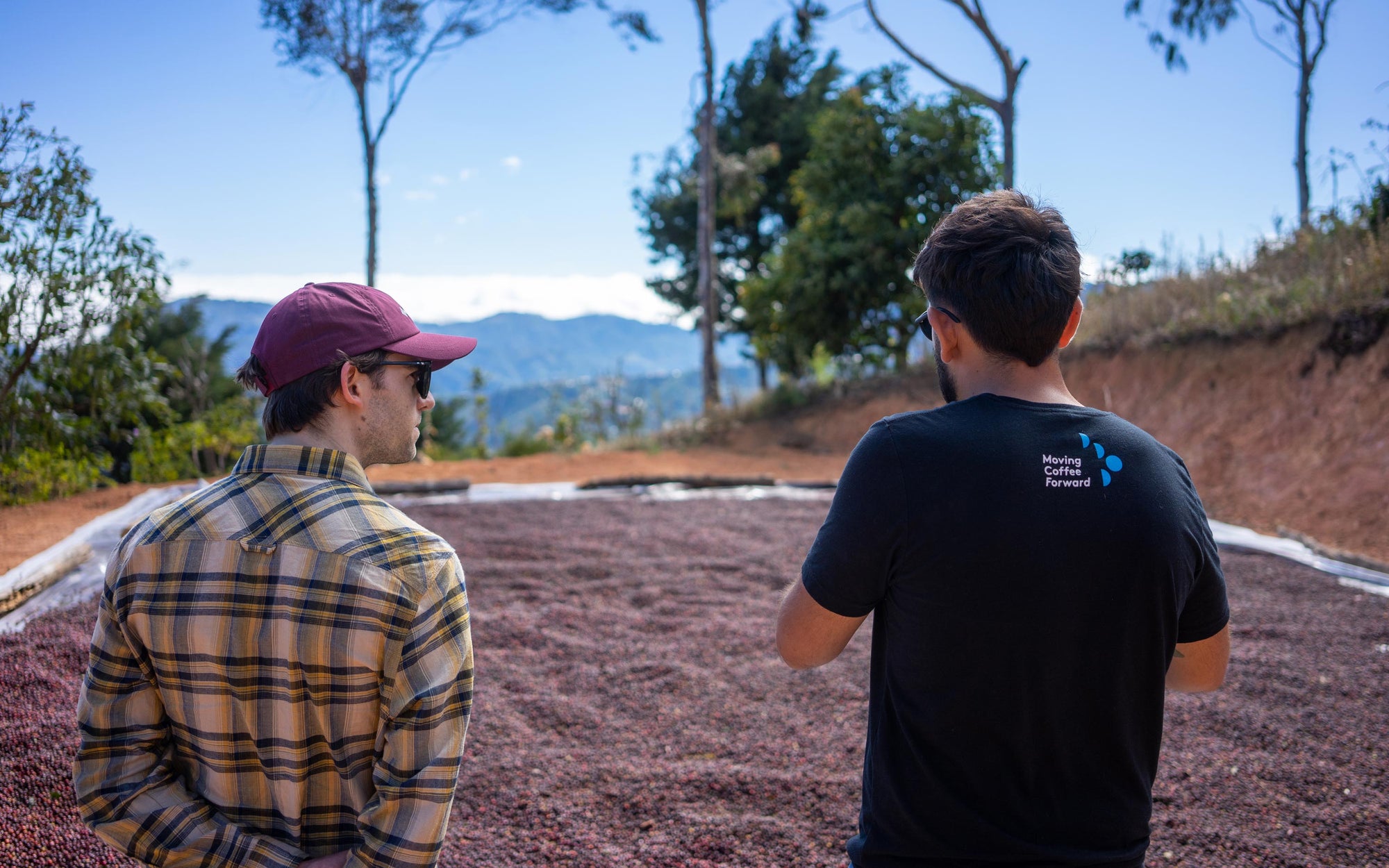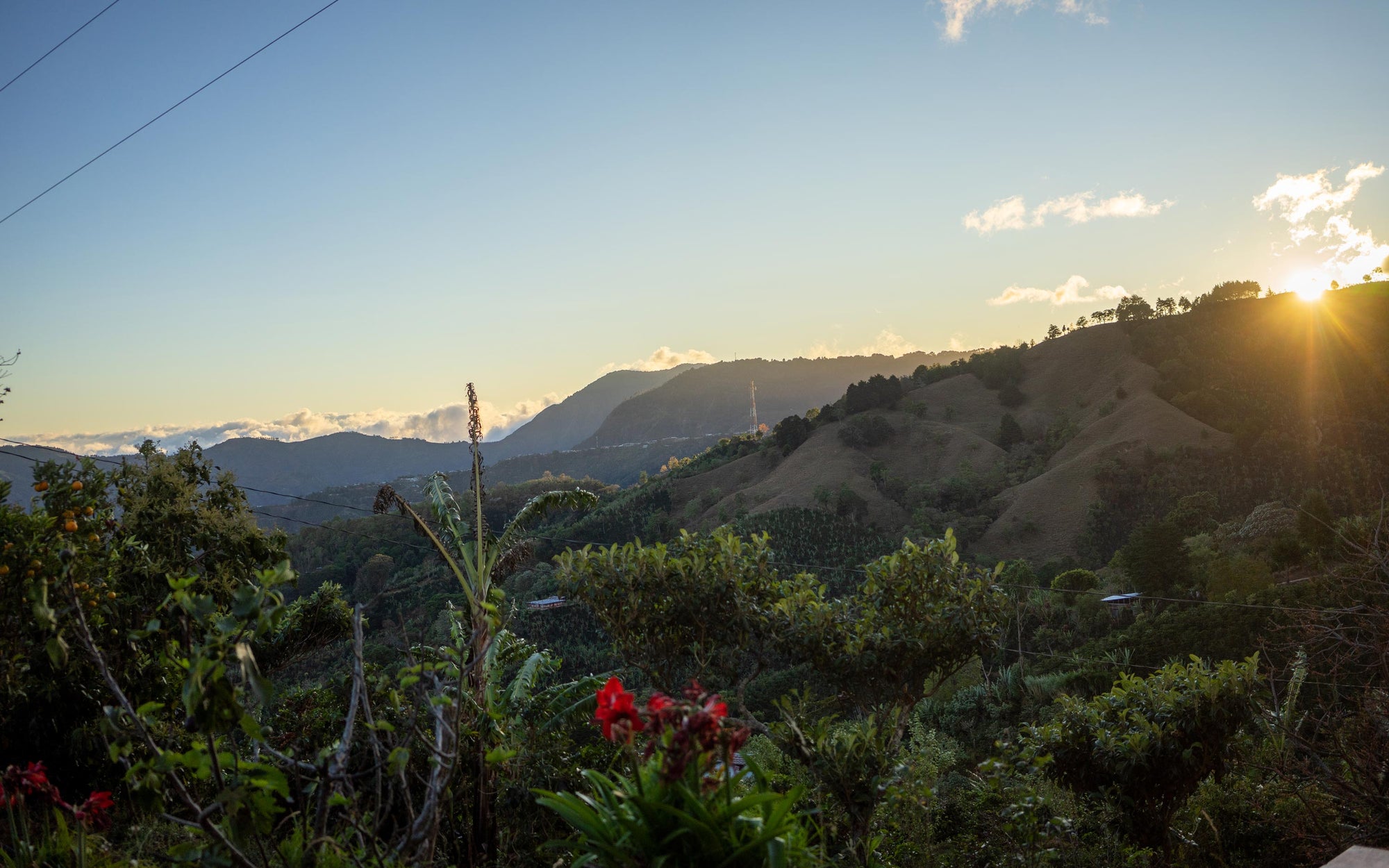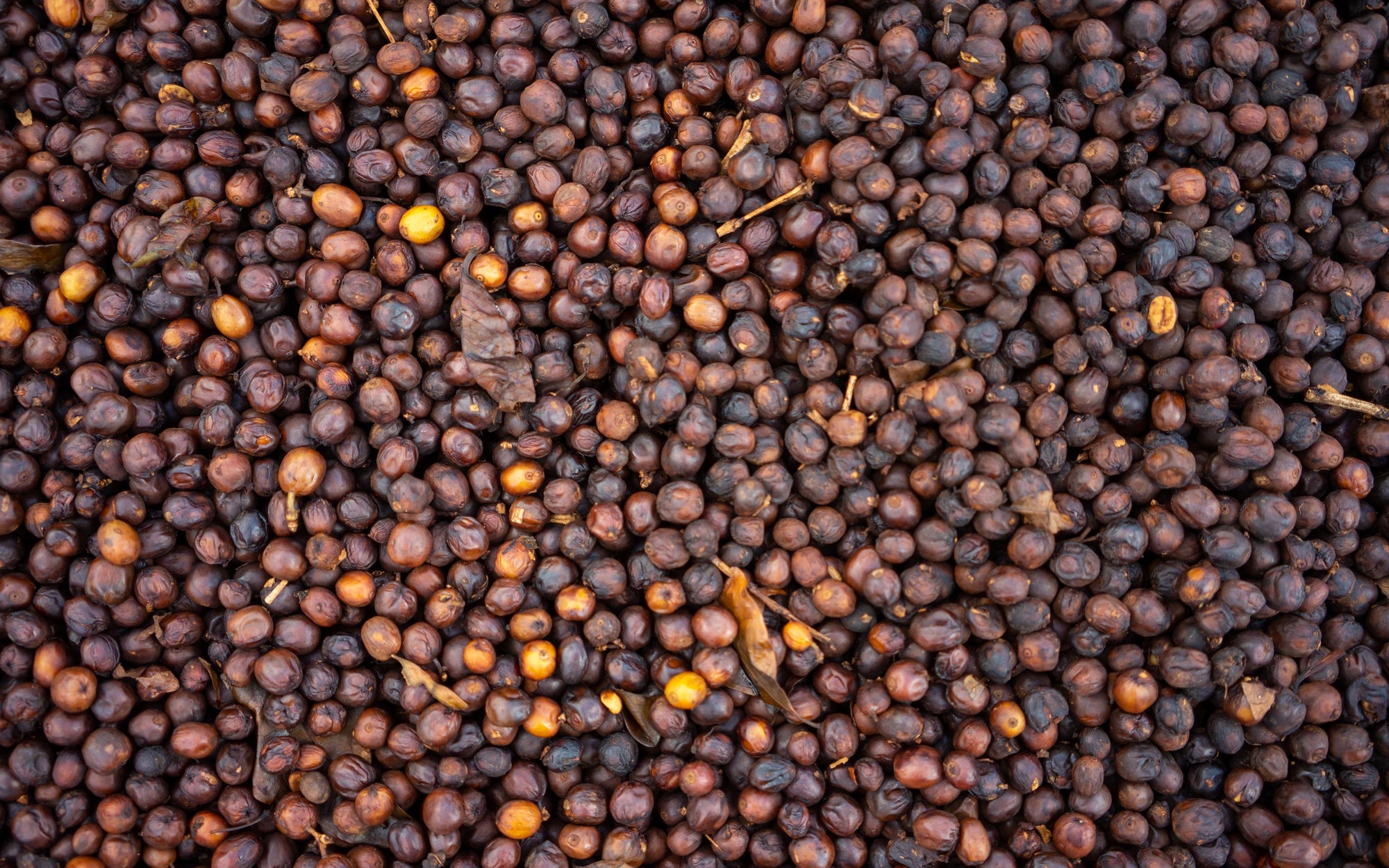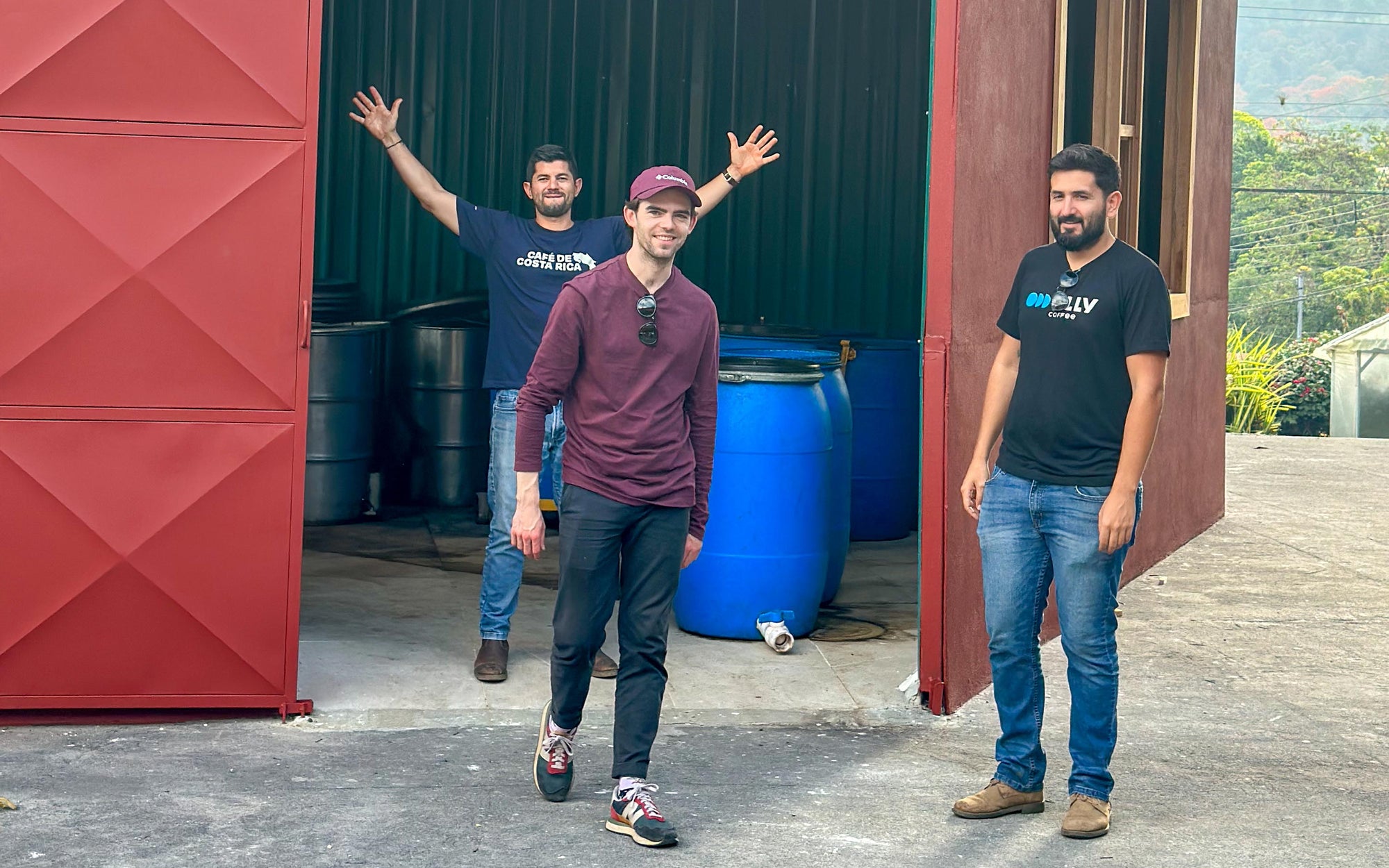Iain Broad's trip to Costa Rica
Iain talks about his recent trip to Costa Rica which was his first origin trip. He visited a number of farms we have and will continue to buy coffee from including: Cafe Ceres, Tio Juan, Don Mayo Mill & Aquiares. He talks about what he learned and how experiencing coffee farms first hand has brought his experiences in the coffee industry into clearer focus.
New experiences
It wasn’t until the end of last year that I travelled outside of Europe, and this trip to Costa Rica was my first to Central America but I felt like I was in very safe hands travelling not only with our Director Tim Gane who had been on a very similar trip the year before but also with Abraham Castro Vindas who is Central America buyer for Ally and knows the area incredibly well. All in all I felt that I was in really safe hands and it was nice to know that we weren’t working it all out completely from scratch.
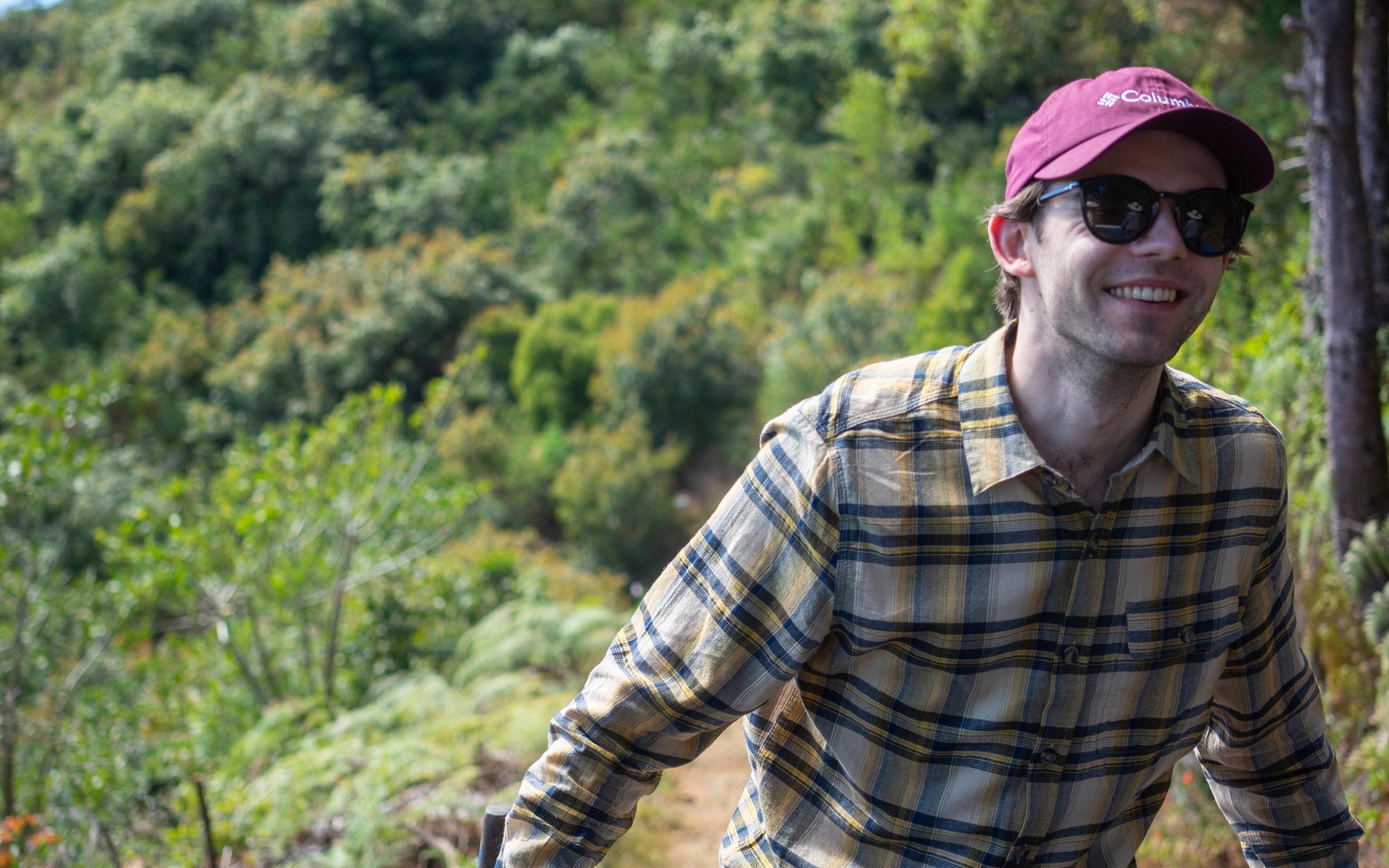

“You see pictures and read about things online and in books but the smells and the tastes and the feeling, the humidity, it’s something that you don’t think about when you’re in the roastery.”
Visiting a coffee farm totally changed how I think and feel about coffee. I think a lot of terminology that I’ve heard thrown around for the past five or six years now makes a lot more sense. You see pictures and read about things online and in books but the smells and the tastes and the feeling, the humidity, it’s something that you don’t think about when you’re in the roastery. I think it felt kind of like the feeling you have when you first see a roastery and you see how much work goes into it, it’s almost like that feeling again, everything being new… familiar, but in such a different context. Having read about these things in a book, and chatting to customers about how coffee is graded or whatever, I’m kind of regurgitating something I’ve read, but now it’s just more inspiring and a lot of what I’ve learned over the last few years has clicked into place.
I feel like one thing that I have a much better understanding of now is the idea of origin characteristic or terroir. We visited a few farms, over the first couple of days and then on the third day we did a big cupping, and you could almost pick out and taste those subtle differences that you had smelled at the farms, the smell of the land and the plants growing there really came through in the taste of the coffee. It was definitely noticeable how different coffee tastes there. Even somewhere that wasn’t necessarily speciality, the coffee tasted fresher and more vibrant. Also I finally understand what Eddie means when he describes coffees as being pulpy now that I’ve tasted coffee cherries and cupped coffees that are that fresh.
“It’s kind of hard to believe that people can calibrate their taste to one another but it was nice to see that we really do have the “Round Hill taste buds”
It was interesting cupping that many coffees in a row and that in particular, that many coffees from one specific farm. One thing that I was really happy about was that when Tim and I discussed coffees we were calibrated to some extent. It’s kind of hard to believe that people can calibrate their taste to one another but it was nice to see that we really do have the “Round Hill taste buds”. As a team we try to taste together and discuss what we’re tasting openly and honestly. In particular we have Friday cuppings where we all discuss our production from that week and that helps us to hone in on our tasting notes.
On Tia Juan’s farm we tried this kind of orangey yellow citrus fruit that was somewhere between a lemon, a lime and a satsuma… it was incredible but also kind of a reminder that lemon isn’t as universal a taste note as we might want it to be. Eating tropical fruit that was fresh was an amazing experience. I ate a passionfruit that was unrecognisable from what we buy in the UK. It was green and fresh rather than the purply brown shrivelled things you can buy here.
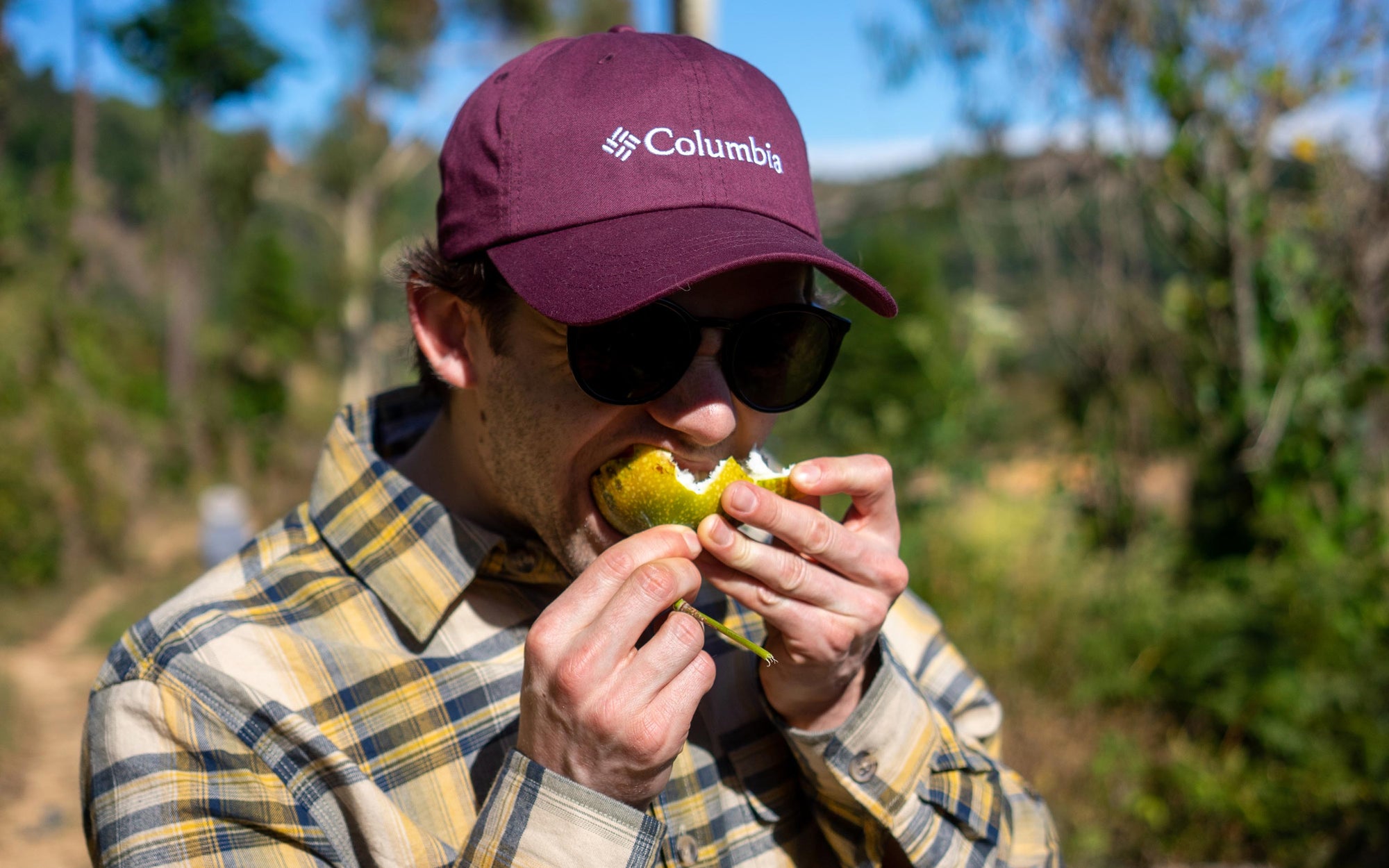

I soaked up a lot of the general sights and sounds and the general sensory experience of origin in the first few days when we were visiting.
Tio Juan was the first farm we went to, the variety of terrain and produce.. The wild feel of it. Tio Juan is very in line with the nature in that area. Also he keeps a lot of animals and really works harmoniously with the ecology. A closed loop way of farming that was really inspiring to see first hand. We took a ride in the back of a trailer all the way up to the highest point on the farm and could really see the altitude of it. I think altitude is quite hard to understand as a British person, altitude is such a big part of coffee. Later in the trip chatting to Diego Robelo he asked what altitude the roastery was at and Tim and I had no idea.. It’s just not something you really think about but if you’re growing coffee it very much is.
I felt like I soaked up a lot of the sights and the smells, the general sensory experience of origin at the beginning of the trip in those first few days but it maybe didn’t make as much sense as I thought it would. Right at the end of the week with Diego at Aquiares, having him take us through each step so clearly and precisely it kind of brought into focus everything I’d taken in through the rest of the week.
